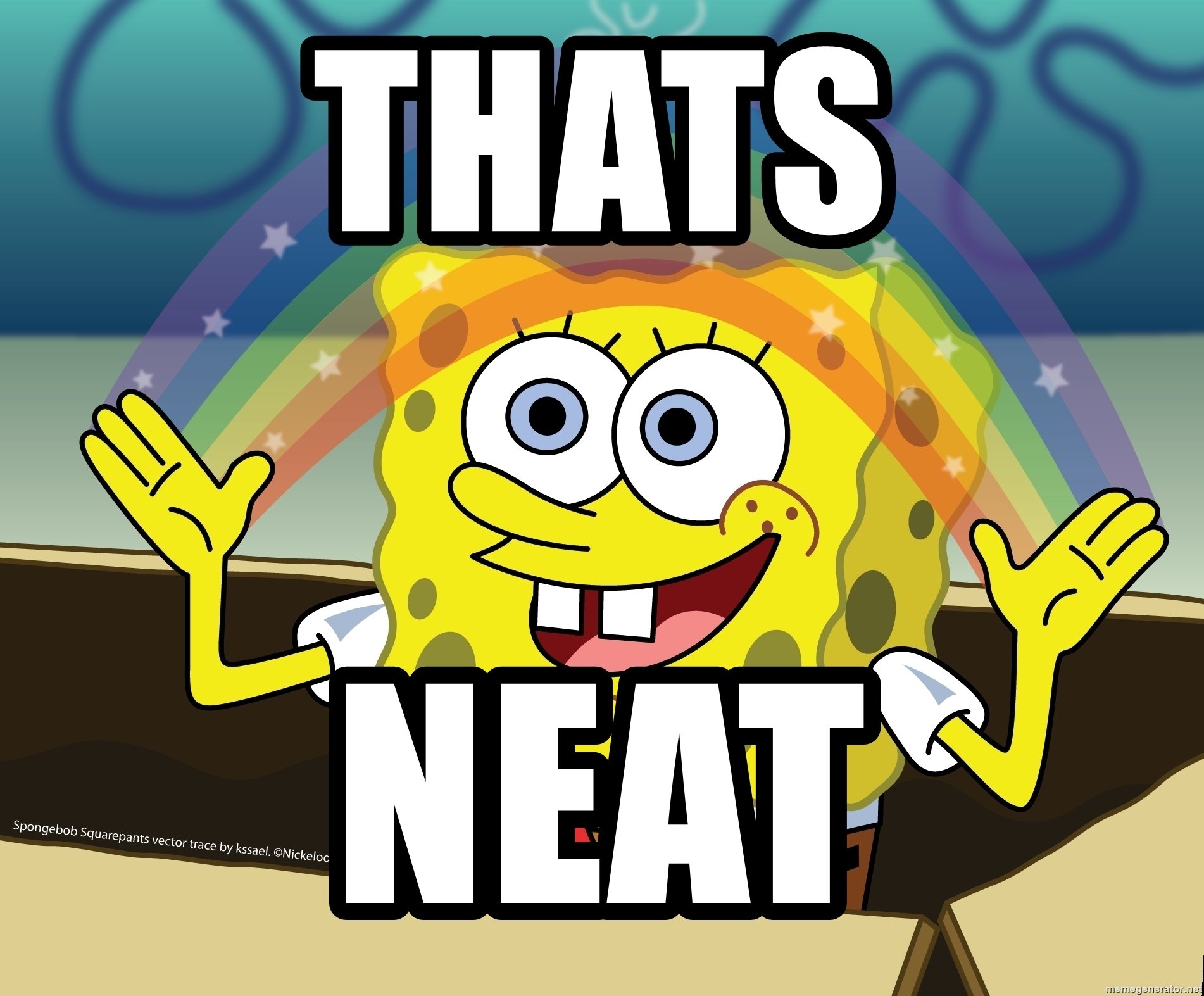To work sustainably, think differently*
/Dearly Beloved, we are gathered here today to get through this thing called work.
Ideally, neither work nor life (as the lyric’s written, rip Prince) would be something we have to “get through,” but sometimes it is. It’s silly to pretend otherwise. I can honestly think of nothing more suspicious than someone who appears perfectly satisfied at all times (the problem with Instagram in a nutshell). Life can be difficult! Work can be uncomfortable! It’s fair and reasonable and, I’m arguing, fully within your rights as a human being to do what it takes to make sustained working workable for you.
At the newspaper, I asked myself, “How do I maximize productivity?” A better question would’ve been, “Is what I’m doing today something I can realistically keep doing, day after day, year after year?” Of course, some days are more demanding than others. Some weeks, even. Some months. But if I’m steering towards sustainability rather than productivity, I can meet the outsized demands that some seasons of life and work place on a person. That simply isn’t possible if I’m always trying to get as much done as I can.
But look, if we define productivity in relation to measurable output—and I suppose we should—then sustainability is arguably already a tacit part of the equation. A machine that makes 500 widgets per hour at top speed but breaks down irreparably after producing 50,000 is less productive than the same machine running indefinitely at low speed, making 250 widgets per hour. So there’s that. But also—what if the machine doesn’t break down irreparably at top speed? What if it breaks down for a day when it hits the 50k mark? Or even a week? What if it breaks down for a month? If all you care about is maximising output, then running your machine at top speed and causing it to break down and require regular repair is the smart move. And so long as you’ve got the resources to do those repairs, it’s not unsustainable.
Besides which, depending on who you ask**, I got a pretty significant detail wrong last week.
Burnout is sustainable
What I defined as burnout is actually exhaustion, according to Anne Helen Peterson, author of The Burnout Generation. “Burnout is of a substantively different category than ‘exhaustion,’” she writes. “Exhaustion means going to the point where you can’t go any further; burnout means reaching that point and pushing yourself to keep going, whether for days or weeks or years.”
(I have something of a bone to pick with Peterson about these terms; she seems to be saying that burnout is exhaustion that you simply refuse to allow to stop you, which is, from where I sit, another way of saying that you’ve never actually been exhausted. If you’ve gone “to the point where you can’t go any further,” and then you go further, then no, you haven’t.)
Anyway, Peterson quotes psychoanalyst Josh Cohen’s definition of burnout as something you feel “when you’ve exhausted all your internal resources, yet cannot free yourself of the nervous compulsion to go on regardless.” Okay. Agreed. I don’t know why we call it “burnout” when Sisyphean Syndrome is right there. But yes, whatever. Which means that burnout itself? Sustainable!
But look, who cares? Just because you can do something doesn’t mean you should. Even if, let’s imagine, your boss is fully fine with you operating in a perpetually burned out state, that doesn’t mean you ought to. Which begs the question: What can you do about it?
Illegitimi non carborundum
Here’s what a friend asked me last week after reading what I wrote about aiming for sustainability rather than productivity:
What do you say for people who have to prove that they’re being productive?
Firstly, message me: hollyharkener at gmail or heharkener on twitter. Give me the specifics of your situation, and I will help you prove your productivity. Secondly, and this is the most important bit, there’s a world of difference between using your time productively and accounting for that time to someone else. So much so, in fact, that we’re really talking about two entirely different disciplines: time management and communication. If your workplace expects you to report on how you use your time, and you can’t imagine being able to do that without prioritizing productivity above everything else, then my number one recommendation for you is that you learn to communicate differently about how you use your time.
I would bet real money that you are already plenty productive, but because you don’t know how to communicate what I would argue are your most valuable energy expenditures, aka Work That Doesn’t Look Like Work, in a way that doesn’t make you sound like the most audacious of slackers, you simply don’t. You don’t try to account for time that doesn’t look worky. You may question how worky that time really is. You may even—and these are the people I most hope to reach—believe you’re not particularly productive at all. Kind of lazy, actually.
Which brings us back to aiming for sustainability rather than productivity. The problem, fellow knowledge workers, with ‘trying to be productive’ is that it forces you to focus solely on output. And what is output?
At what point are you officially productive? Is it when you’re at work? No, that can’t be it. I spent twenty minutes today talking with coworkers about the 1974 Blue Swede track, Hooked on a Feeling. We’re an IT services firm, not Pitchfork or Rolling Stone magazine, so that conversation can’t have been productive, can it? Maybe productivity starts when you’re actively trying to solve a problem or create something. Except, hang on… I could spend hours trying. That doesn’t mean I’ll actually get anywhere.
Maybe productivity can only be identified in retrospect. Still, how? Check marks on a task list? Products made? Features delivered? Happy customers? If so, how many?
Clear as mud, eh?
If you are a knowledge worker, and you talk about how you use your time in terms of productivity—output relative to input—no amount of work will ever feel like enough, let alone look like enough to a boss who hasn’t thought critically about what it means to be productive beyond the industrial revolution***. You don’t need to be more productive; you need to think differently about your efforts (so that enough feels like enough) and communicate differently about your efforts (so that the boss who’s stuck in the 1800s sees that it’s enough). The way out of this perpetual state of burnout is not to do more but to be the knowledge worker that you are and THINK in a new way about what you’re already doing.
You are your solution to burnout
It doesn’t have to be my way of thinking—‘aim for sustainability rather than productivity’ is a semantic game I’m playing with myself, a way of approaching my work that helps me to enjoy it and avoid burnout (and exhaustion!). But because we’ve just established that:
sustainability is already a tacit aspect of productivity, and
burnout is sustainable
… if the idea of aiming for sustainability instead of productivity trips you up, I get it! Good news: You are a knowledge worker and are more than capable of thinking candidly, critically, and without constraint about what might make sustained working workable for you. The essence of my argument both here and in my previous post is not that everything will be fine if we all do it my way, but that individual, burned-out knowledge workers have more power to improve their individual situations than they realize, and it is the same power that got them hired in the first place—the power to solve problems.
Regardless of your industry, as a knowledge worker, your job is to use your brain to think about problems and help solve them. If you’re experiencing burnout, that qualifies as a problem—for you if for no one else. Aren’t you worth at least as much of your cognitive prowess as your clients/customers/coworkers are? Apply your formidable skills to that problem. This is your wheelhouse, man. Get curious, get creative. There is no one-size-fits-all solution to burnout, so if sustainability isn’t your jam, find something that is. Or several somethings. Whatever it takes. Go crazy. You are the one who can help you, not the boss who needs you to prove that you’re productive.
*I wanted to title this “Punch a higher floor,” but I’d already gone too far with the Prince theme, so I reined it in. You’re welcome.
**Psychologist Herbert Freudenberger, who coined the term, defined burnout as a “state of mental and physical exhaustion caused by one's professional life.”
***This isn’t a dig. Okay, it’s a little bit of a dig. But look, I’ve found that most people don’t inspect broadly accepted notions; they simply parrot them. On becoming a manager of people, the average person will simply do and say whatever their manager does and says, or whatever manager they think is cool does and says. What they won’t do (usually) is question fundamentals like, “People should be productive when they’re working,” and “You can tell when people aren’t being productive,” because in the year of our lord two thousand and twenty-one such ideas appear so patently, obviously irrefutable that to question them seems like a great way to make yourself look stupid in front of everyone. We all have weaknesses. 🤷♀️ And if your boss makes you prove your productivity to them, a lust for interrogating the status quo is sadly not one of theirs.




